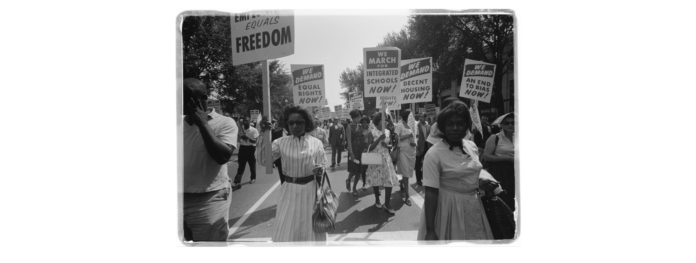
By Emily Cousins | Staff Writer
Black women’s stories have often been left out of history, but scholars are working to fill in the gaps and include them in American history even before colonization.
Dr. Ronald Angelo Johnson, the Ralph and Bessie Mae Lynn Chair of History, said when celebrating Black women, he wants to focus on the lesser-known women.
“My mother, Gloria Johnson, never graduated high school,” Johnson said. “She grew up in East Texas. She raised nine children and a slew of grandchildren, but I wouldn’t be here today had it not been for her. Had she not taught me how to navigate the world as a Black man; how she showed me those things that I couldn’t do … She taught me how to navigate this world successfully as an African American male.”
Johnson said Black women have led the way to advances in freedom.
“I think about the generations of Black women whose shoulders upon whose shoulders I stand, who never saw an African American male professor in the Department of History,” Johnson said. “I am here because so many people came before me through sacrifice and struggle.”
Johnson said one cannot talk about American history without including the stories of Black women.
“These women taught their daughters how to navigate the enslaved environment, how to search for freedom, and these unsung Black women are the pillars of African American society,” Johnson said. “They help teach our men and women how to be adults in the world.”
When telling the history of Black women, especially those who were brought to the United States by force, Johnson said there are many stories missing. He said records were not well kept on Black people because they were devalued.
“It is very difficult to write the story of African American women without including the stories of white Americans, and that’s a hindrance to the scholarship because you have to depend on what white Americans said about them,” Johnson said. “If a white American woman was feeling this about her child, African American women were feeling this about their child, and these African American scholars are doing the work of bringing to life African American women.”
Johnson said the goal is to help people see that girlhood and motherhood transcend race, so Black women will truly be seen as crucial members of society.
“The argument has always been until recently, ‘Well, how can we tell their stories, when they didn’t leave behind any sources?’” Johnson said. “What these African American scholars, particularly African American women scholars, are doing is saying, ‘We can no longer rely on that trope of data link sources to devalue the lives of Black women to American history.’ I think that is such a wonderful and innovative method to doing history. It is not only about saying we’re not going to rely on the history of white American males, but we’re going to examine the lives of Black women through the lives that we already know.”
Fresno senior Forche Bridges said via email that every time she learns about a Black figure or historical event, she feels closer to her Black culture.
“I think one way we can reconcile the disconnect is by one: being intentional with creating diverse curriculum for schools so that kids aren’t only taught history from the ‘white’ or ‘majority’ perspective, and two: whether you’re in school or not, we all have to do our part in educating ourselves and being open to hearing the stories of other people,” Bridges wrote.
Bridges said Black History Month is a time to celebrate and acknowledge Black culture.
“For me, celebrating Black history is a continuous effort every day,” Bridges wrote. “While I do my best to educate myself year-round, I use February to publicize unknown figures and facts while I have the attention of those who don’t always take the time to learn about our history outside of Black History Month.”
Johnson said Black History Month is extremely important this year because of the racial tensions seen across the United States.
“I think the value of both celebrating Black History Month and the value of having Black history class across this community helps us step back for a minute and look at the strides we have made in a relatively short amount of time,” Johnson said. “Resistance to change is not going to go away. It just means it is going to make our path toward change that much harder. We’ll see that the path, the struggles, the obstacles; they were all worth it.”
Correction: This story was edited to remove a part of a quote by Johnson that implied that the work of the telling of Black women’s stories has just been done in the last six years. Instead, Johnson wants to clarify that scholars like Darlene Clark Hine and Jennifer H. Morgan (among others) have done groundbreaking work to preserve and focus attention on Black women and their history.





